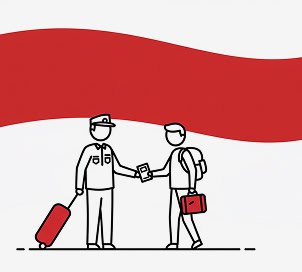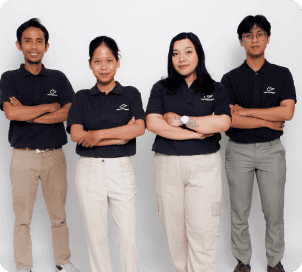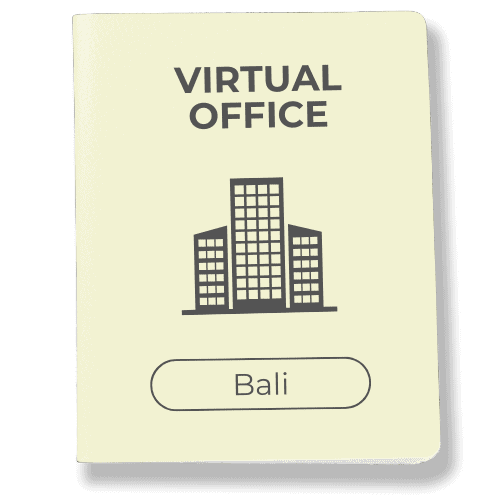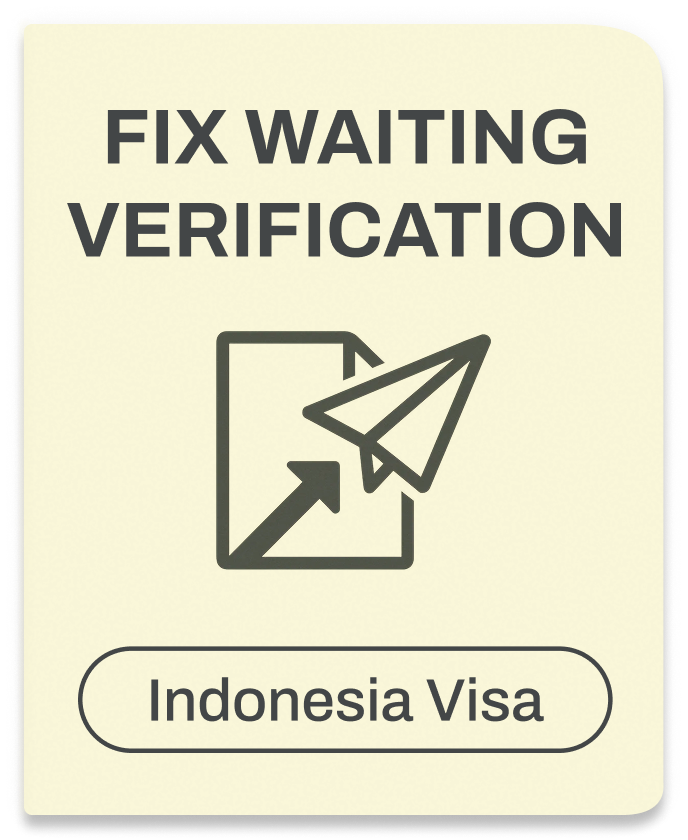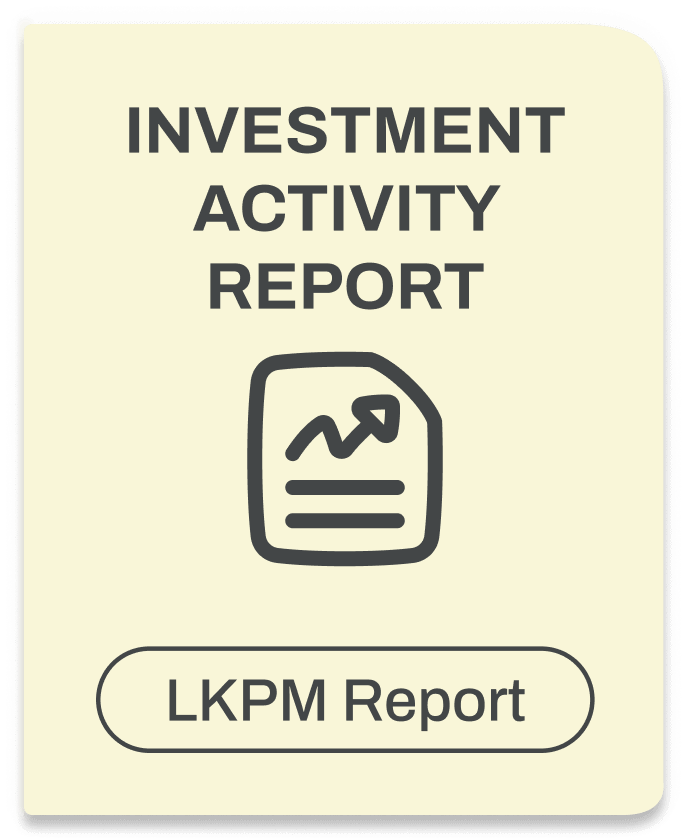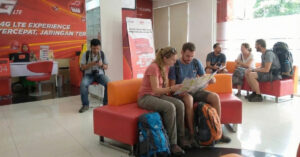The Complete Guide to Bali International Schools (2025)

Moving to Bali with kids? You’re probably wondering about Bali international schools. Don’t worry – Bali has some fantastic international schools that can give your children an exceptional education while you all enjoy island life.
This guide breaks down everything you need to know about choosing the right school for your family. We’ve done the research so you don’t have to spend weeks digging through websites and parent forums.
Table of Contents
How We Put This Guide Together
We didn’t just copy what other websites said. Instead, we dug into official school databases, checked out 2025 school guides, and visited actual school websites. Then we cross-checked everything – fees, curricula, accreditations, locations, and student outcomes.
We only included schools that meet strict criteria: they must be fully licensed, offer genuine international curriculum options (like IB, Cambridge, or Australian programs), teach primarily in English, publish their fees transparently, and have clear admissions processes.
Here’s the thing though – we don’t rank schools from “best” to “worst.” That’s not helpful because every family is different. Instead, we’ll help you figure out which school fits your children and family best.
Bali Schools at a Glance
Let’s start with the basics. International education tuition in Bali typically runs from about $3,000 to $18,000 per academic year, depending on your child’s grade level. But remember, that’s just tuition. You’ll also need to budget for registration fees, annual levies, uniforms, school camps, transportation, and visa costs.
Most bali international schools cluster in four main areas: Sanur and Denpasar (the traditional expat hub), Canggu and Kerobokan (the trendy surf areas), the Ubud corridor (artistic and peaceful), and the Bukit Peninsula (newer development area).
Traffic can be brutal in Bali, so location matters more than you might think. A school that looks perfect on paper might not work if the daily commute turns into a nightmare for your daily life.
Curriculum Pathways Explained
Bali offers schools that follow the IB, Cambridge, or Australian systems, each with its own rhythm, strengths, and long-term opportunities. Some emphasize academic breadth, others lean into subject mastery, and a few balance both with strong co-curricular experiences. In this section, we’ll break down how these pathways work, what sets them apart, and how they can shape your child’s next steps.
International Baccalaureate (IB)
Think of IB as the United Nations of education. It’s recognized worldwide and focuses on creating well-rounded, internationally-minded students. The Diploma Programme demonstrates academic rigor and is highly respected by universities globally. This holistic approach empowers students to become critical thinking individuals.
Pros: Excellent university recognition, develops critical thinking, truly international perspective, strong research skills
Cons: Very demanding, not all kids thrive under the pressure, limited subject choices at higher levels
Cambridge/IGCSE
This is the British system, designed for international schools. Students take IGCSE exams at age 16, then can continue with A-Levels. It’s more flexible than IB and allows students to specialize earlier in their academic journey.
Pros: Flexible subject combinations, excellent for students who know their strengths, strong university recognition Cons: Can be narrow if students specialize too early, less emphasis on breadth of knowledge
Australian Curriculum
Straightforward and practical, focusing on essential skills and knowledge. Students typically stay in this system through Year 10, then have various senior options that prepare them for further education.
Pros: Strong foundational skills, practical approach, familiar to Australian families
Cons: Less international recognition than IB or Cambridge, fewer senior pathway options in Bali
Location and Lifestyle Considerations
Where you live and where your child goes to school will shape your entire Bali experience and daily life.
Sanur/Denpasar Area
Traditional expat hub with established infrastructure. Traffic can be heavy, but you’re central to most services. Good for families who want convenience and don’t mind being in the main expat bubble. Many schools here offer strong academic and extracurricular programme options.
Canggu/Kerobokan
Hip, creative area popular with digital nomads and surf families. Great lifestyle, but can feel disconnected from “real” Bali. Traffic to other areas is increasingly problematic. Perfect for families seeking creativity and alternative education approaches.
Ubud Corridor
Beautiful, cultural, and peaceful, but commuting to schools elsewhere is challenging. Perfect if you choose Green School or work remotely. The environment here naturally supports nature-based learning and sustainability education.
Bukit Peninsula
Newer area with stunning beaches and resorts. Still developing its expat community and services. Great for a resort lifestyle but can feel isolated from the main school options.
Your School Checklist
Before you start visiting schools, think about what really matters to your families. Here are the big questions:
Academic Path: Do you want the International Baccalaureate’s programs, Cambridge IGCSE/A-Levels, or the Australian curriculum? Each has different strengths, which lead to different further education options.
Languages: How important is learning Bahasa Indonesia? What about maintaining your home language or adding a third language?
Class Size: Some families love small, intimate classrooms. Others prefer the energy and resources of larger schools where students can make more friends.
Special Needs: Does your child need learning support, English language help, or programs that support emotional well-being and child development?
Activities: Is your teen a serious athlete? A budding artist? Make sure the extracurricular programme can nurture their passions and help develop practical life skills.
Timeline: When are you moving? Some schools have waiting lists, especially for certain grade levels like middle school.
Visas & Schooling Logistics for Foreign Parents in Bali
If your child isn’t from an Indonesian mixed marriage, they will need the correct visa to study legally in Bali. The main option is the Student Visa (E30). This visa allows your child to live in Indonesia and attend school, and it comes with the benefit of multiple re-entry, meaning your child can travel in and out of Indonesia during the study period.
How It Works
The school becomes the sponsor of the visa application. Once your child is accepted, the admissions team usually provides the required sponsorship letter and guides you through the process. The application is done through Indonesia’s official eVisa system, and on arrival, the student’s visa is converted into a limited stay permit (KITAS) for the duration of study.
Documents Commonly Required
- Valid passport (at least 18 months validity recommended)
- Official acceptance/sponsorship letter from the school
- Recent passport-sized photographs
- Proof of sufficient funds for living and schooling
- Completed application forms (provided through the eVisa portal)
- Parental consent documents (for minors)
Important Reminders
Do not attempt to use a tourist visa for school enrollment—it is not permitted under Indonesian law.nd it comes with the benefit of multiple re-entry, meaning your child can travel in and out of Indonesia during the study period.
Start the visa process early—allow at least 4–8 weeks before the school year begins.
Rules and requirements can change, so always confirm the latest checklist with your child’s school and cross-check with the official Immigration website.
How It Works
The school becomes the sponsor of the visa application, you can also point trusted Indonesian citizen to be your sponsor. Once your child is accepted, the admissions team usually provides the required sponsorship letter and guides you through the process. The application is done through Indonesia’s official eVisa system, and on arrival, the student’s visa is converted into a limited stay permit (KITAS) for the duration of study.
Documents Commonly Required
- Valid passport (at least 18 months validity recommended)
- Official acceptance/sponsorship letter from the school
- Recent passport-sized photographs
- Proof of sufficient funds for living and schooling
- Completed application forms (provided through the eVisa portal)
- Parental consent documents (for minors)
Important Reminders
- Start the visa process early, at least 4–8 weeks before the school year begins.
- Rules and requirements can change, so always confirm the latest checklist with your child’s school and cross-check with the official Immigration website.
- Do not attempt to use a tourist or even dependent visa for school enrollment, it is not permitted under Indonesian law.
Expert Visa Support for School Enrollment
Finding the right international school for your children is a huge step—but it’s only half the journey. To actually enroll your kids and settle in, you’ll also need the proper visa paperwork in place. That’s where many families get stuck, and it’s exactly where we can help.
At visa-indonesia.com, we guide parents through Indonesia’s visa rules with clarity and care. Whether it’s securing a student visa for your child or making sure your family’s stay permit is set up correctly, our team handles the details so you don’t have to. That means fewer headaches with forms and government offices, and more energy for what really matters; helping your kids adjust to their new school and enjoying your life in Bali.
Ready to start your next chapter?
The Top International Schools in Bali
When it comes to choosing the right school in Bali, what you’re looking for may be not the same with other parents. That’s why we’ve put together a clear, side-by-side look at some of the island’s top international schools. Each with its own strengths, philosophy, and learning style.
Bali Island School (Sanur/Denpasar)

This is Bali’s veteran international school, and it shows. Bali Island School offers the full International Baccalaureate program from Primary Years through Diploma Programme. They’ve been doing this for decades, so they know what works to create lifelong learners.
Their recent IB Diploma results consistently beat the global average, demonstrating true academic excellence. The school community has a strong sense of connection – think of it as the kind of place where teachers know every student’s name and parents actually enjoy school events.
The Sanur location is convenient for many expat families, though traffic to other parts of the island can be challenging. The campus feels established and comfortable, with good facilities for both academics and sports. The school equipped with everything needed for academic rigor while maintaining a close knit community feel.
Best fit for: Families who want a proven track record, strong community feel, and the full IB experience. Kids who thrive in structured, well-established environments where they can develop critical thinking skills and become responsible members of their community.
Consider carefully if: You’re looking for cutting-edge facilities or want to avoid the “traditional expat school” vibe.
Canggu Community School
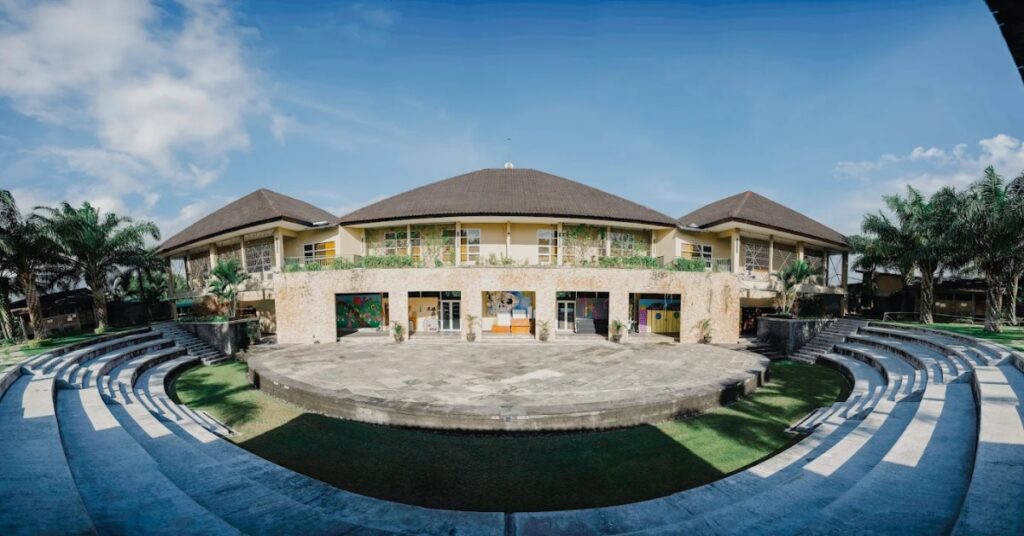
This school perfectly captures the Canggu spirit – creative, community-minded, and slightly alternative. Canggu Community School follow the British curriculum through IGCSE, then switch to IB Diploma for the final two years, creating empowers students to follow vibrant careers.
The school is particularly strong focus in arts and has embraced the surf culture of its location. Don’t expect stuffy uniforms or rigid traditions here. The community is tight-knit, and parents are genuinely involved in school life.
The campus is still developing, but what’s there reflects the school’s values – open, collaborative spaces that encourage creativity and help students discover their passions. Their academic and extracurricular programme are excellent, especially if your child is into surfing, arts, or environmental projects.
Best fit for: Creative kids, families who want a relaxed but academically solid environment, and those who love the Canggu lifestyle. Students who want to live fully while developing both academic skills and emotional growth.
Consider carefully if you prefer a more traditional academic structure or need extensive facilities for competitive sports.
Green School Bali (Sibang/Ubud)
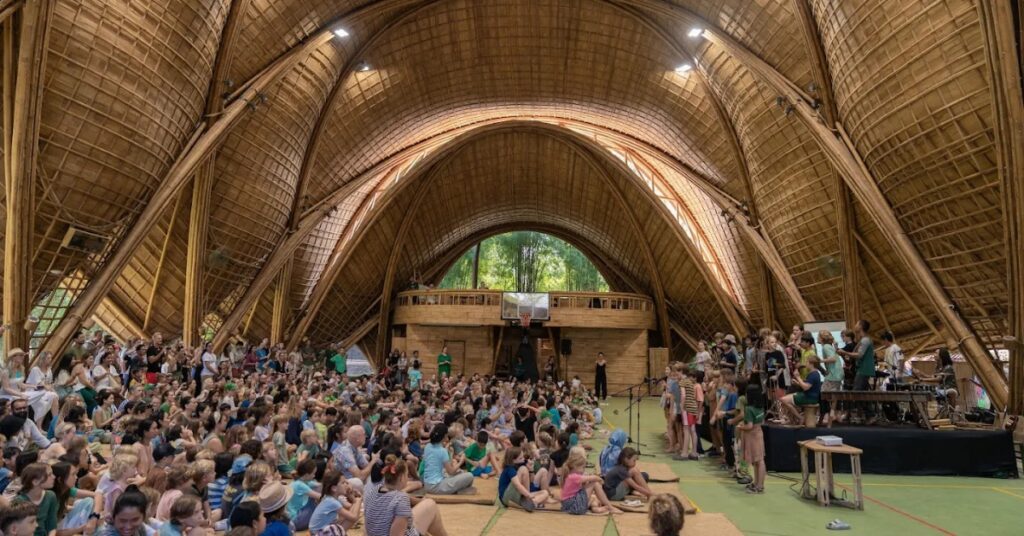
Green School isn’t just different – it’s revolutionary. Set in a stunning bamboo campus in the jungle near Ubud, this school focuses on sustainability and project-based learning.
Instead of traditional subjects, kids might spend weeks studying river ecosystems while learning math, science, and writing through hands-on projects. It’s child led education that sees students thriving in natural environments. Students take nature walks and explore the world around them as part of their curriculum.
The school attracts families from around the world who want something completely different from conventional education. University preparation happens, but not in the way you might expect. This empathy school approach helps develop well-rounded individuals.
Best fit for: Independent learners, environmentally conscious families, kids who struggle in traditional classrooms, and parents ready for an educational adventure. Perfect for ages where child development benefits from outdoor learning.
Consider carefully if you need a traditional transcript for university admissions or prefer structured, subject-based learning.
AIS Indonesia – Bali (Kerobokan/Denpasar)
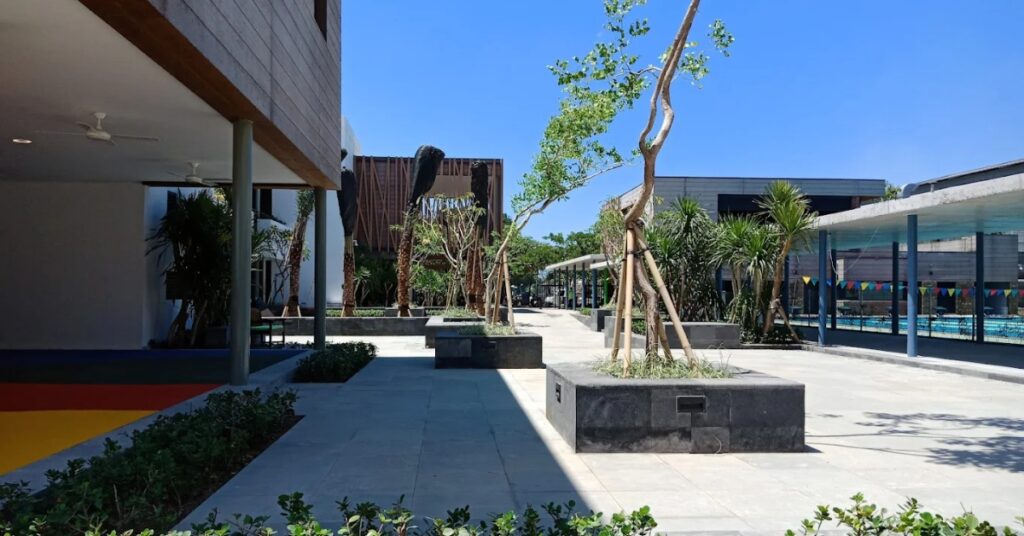
This school brings Australian education to Bali. If you’re Australian or familiar with the Australian system, you’ll feel right at home. They follow the Australian curriculum through Year 10, then offer various senior pathways for further education.
AIS is known for strong basics – literacy and numeracy programs are solid, and they have excellent sports facilities including comprehensive physical education programs. The school culture feels familiar to Australian families but welcoming to others.
The campus is modern and well-equipped, particularly for sports. If your child is serious about athletics, this might be the place where they can truly thrive and develop both academic excellence and physical skills.
Best fit for: Australian families, kids who need strong foundational skills, student athletes, and families who prefer straightforward, practical education approaches that prepare students for vibrant careers.
Consider carefully if: You want IB or Cambridge pathways, or if the Australian system doesn’t align with your university plans.
Dyatmika School (Gianyar/Denpasar East)
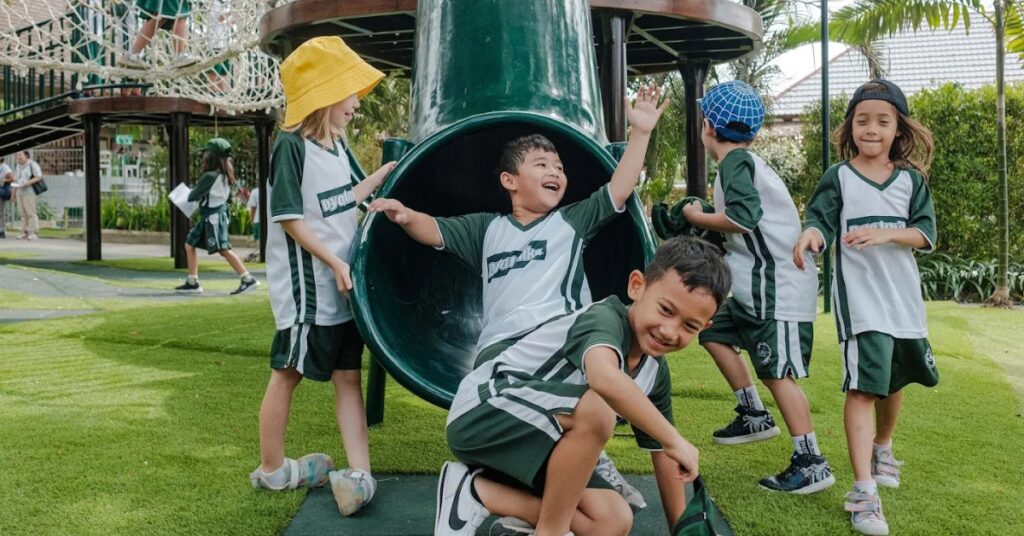
Dyatmika school offers something unique – a genuine bilingual education with both Indonesian and international pathways. Students can follow the Cambridge IGCSE while also maintaining Indonesian language and cultural connections.
This school serves both expat and Indonesian families, creating an interesting cultural mix. It’s particularly good for families who want their children to really understand Indonesian culture and language. The approach helps students develop respect for different cultures while maintaining academic standards.
The community feel is strong, and costs are generally lower than those of some other international schools while maintaining quality education. This approach sees students thriving in diverse environments.
Best fit for: Families planning to stay in Indonesia long-term, kids who adapt well to diverse environments, and parents who want genuine cultural integration that prepares learners for our interconnected world.
Consider carefully if: You need purely Western educational approaches or are planning to move to countries where Indonesian language skills won’t be valued.
Understanding the Costs
Let’s talk money. Tuition is just the beginning. Here’s what a typical academic year might actually cost for quality education. School fees in Bali can vary significantly depending on the institution, curriculum, and grade level. What follows is meant as a general overview of costs, not an exact figure, each school sets its own fee structure and additional charges.
Early Years Example:
- Tuition: $8,000
- Registration/Application: $500
- Annual levy: $1,000
- Uniforms: $300
- Transport: $1,200
- School camps: $400
- Materials/Technology: $300
- Total: Around $11,700
Secondary Example:
- Tuition: $15,000
- Registration: $500
- Annual levy: $1,500
- Uniforms: $400
- Transport: $1,200
- Exam fees: $800
- School trips: $1,000
- Materials: $500
- Total: Around $20,900
Don’t forget visa costs, which can add another $1,000-2,000 per year for the whole family, depending on your situation. Many schools are private institutions, so understanding total costs helps families plan effectively.
Academic Excellence and Student Development
The best Bali international schools focus on more than just test scores. They understand that child development involves emotional well-being, practical life skills, and academic excellence, working together.
Look for schools where teachers understand that students learn differently and at different paces. The school community should support both academic achievement and emotional growth, helping children develop into confident, capable individuals ready for their future.
Quality institutions will have programs that join traditional academics with extracurricular programme combine activities like music, arts, sports, and community service. This approach helps students discover their passions while building skills they’ll use throughout life.
Making Your Decision
Start by creating two lists: “Must Haves” and “Nice to Haves.” Be honest about what really matters to your family versus what sounds good in theory. Consider how each school supports child development and creates opportunities for students to explore their interests.
Visit schools during normal school days, not just during special events. Talk to current parents, not just admissions staff. Ask tough questions about teacher turnover, university outcomes, and how they handle behavioral issues while supporting emotional well being.
Most importantly, trust your gut. The school that looks perfect on paper might not feel right when you visit, and that’s important information too. Look for places where your child can truly thrive and develop into one of tomorrow’s lifelong learners.
Admissions and Timeline
Most Bali international schools follow similar admissions patterns. Applications typically open in January for the following academic year, with priority given to siblings and early applicants.
Many schools require placement tests, especially for older students. Some offer trial days where your child can experience the school firsthand and see if they fit with the school community.
Start your research early – like, six months before you need to enroll. Good schools can have waiting lists, particularly for popular grade levels like Year 7 (start of middle school).
The Bottom Line
Bali offers some genuinely excellent international schooling options. You’re not compromising on education quality by choosing to live in paradise – in fact, your children might get opportunities here they’d never have in their home country.
The best Bali international schools understand that exceptional education comes from collaboration between students, teachers, parents, and the broader community. They create environments where children can thrive academically while developing the skills and character they need to succeed in our interconnected world.
Take your time, visit multiple schools, and remember that the “best” school is the one that fits your child and family best. Look for places that will help your children become confident learners ready to follow vibrant careers and make positive contributions to their future communities.
Ready to Apply or Extend Your Visa?
Let our visa specialists handle your application.

